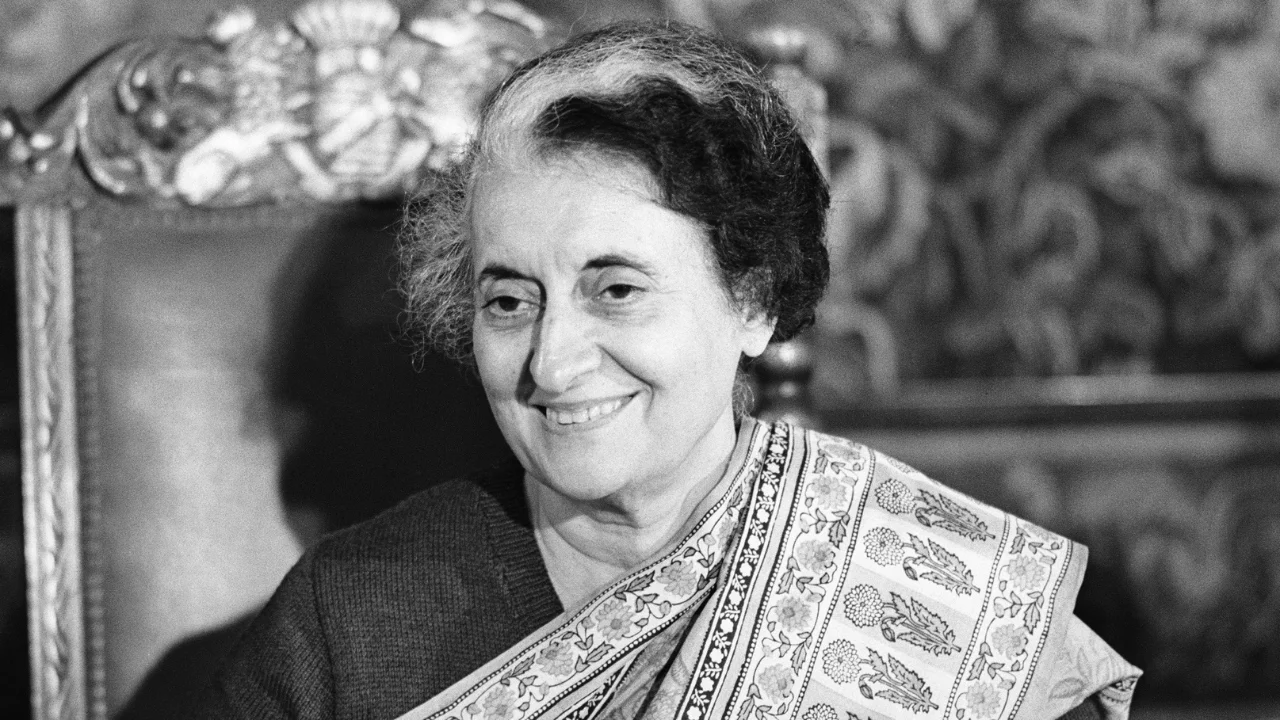Death Anniversary of Indira Gandhi 2024
October 31 is indeed a somber day in Indian history as it marks the tragic death of former Prime Minister Indira Gandhi. Her assassination in 1984 had a profound impact on the nation. It is a day of remembrance for her contributions to India’s political landscape, as well as a day to reflect on the events that transpired during Operation Blue Star and its aftermath.
About Indira Gandhi
Indira Priyadarshini Gandhi (19 November 1917 – 31 October 1984) was an Indian politician and stateswoman who served as the third Prime Minister of India from 1966 to 1977 and again from 1980 until her assassination in 1984. She was the first and, to date, only female prime minister of India. She was a central figure in Indian politics as the leader of the Indian National Congress. Gandhi was the daughter of Jawaharlal Nehru, the first prime minister of India.
Early Life
Gandhi was born in Allahabad, India, on November 19, 1917. She grew up in a privileged household and was educated at some of the best schools in India and abroad. Gandhi entered politics in the early 1940s and quickly rose through the ranks of the Indian National Congress. She became a close confidante of her father, Jawaharlal Nehru, and served as his secretary for many years.
Political Life
After India gained independence in 1947, Gandhi held several cabinet positions in the government of her father. In 1966, she succeeded him as prime minister. Gandhi’s tenure as prime minister was marked by several significant achievements. However, she also faced several challenges, including a war with Pakistan in 1971 and the Emergency of 1975-1977, a period during which she suspended civil liberties and ruled by decree.
Gandhi returned to power in 1980 and served as prime minister until her assassination in 1984.
Indira Gandhi’s Assassination
Indira Gandhi was assassinated on October 31, 1984, by two of her own Sikh bodyguards, Beant Singh and Satwant Singh. The assassination was in retaliation for Operation Blue Star, a military operation that Gandhi had ordered against the Golden Temple, the holiest shrine of Sikhism.
Gandhi was a controversial figure. But there is no doubt that she was one of the most important and influential leaders in Indian history. She was a strong advocate for secularism and socialism, and she played a key role in shaping India’s post-independence development.
Indira Gandhi’s notable achievements
- Gandhi oversaw the Green Revolution, which helped to improve India’s agricultural productivity and reduce poverty.
- Gandhi nationalized banks and key industries, which helped to promote economic growth and social justice.
- Gandhi led India to victory in the 1971 Bangladesh Liberation War. It resulted in the creation of Bangladesh as an independent nation.
- Nuclear power program: Gandhi launched India’s nuclear power program, which has helped to make India a nuclear-armed power.
Gandhi was also a strong advocate for women’s rights and empowerment. She was a role model for women around the world, and her legacy continues to inspire generations to come.
Operation Blue Star
Operation Blue Star was an Indian military operation carried out between 1 and 10 June 1984 to remove Sikh militants from the Golden Temple in Amritsar, Punjab. The operation was ordered by the Indian government led by Prime Minister Indira Gandhi, in response to the growing Sikh separatist movement led by Jarnail Singh Bhindranwale.
The Golden Temple is the holiest shrine of Sikhism, and it is located in the city of Amritsar in Punjab. Bhindranwale and his followers had fortified themselves in the Golden Temple complex. They were using it as a base to launch attacks against the Indian government.
On June 1, 1984, the Indian army launched Operation Blue Star to flush out Bhindranwale and his followers from the Golden Temple complex. The operation lasted for four days, and it resulted in the deaths of hundreds of Sikh militants and pilgrims, as well as damage to the temple itself.
Aftermath
The aftermath of Operation Blue Star was also tragic. The assassination of Indira Gandhi by two of her Sikh bodyguards on October 31, 1984, is widely seen as a retaliation for Operation Blue Star. The assassination was followed by widespread anti-Sikh riots, in which thousands of Sikhs were killed.
Operation Blue Star is a significant event in Indian history. It continues to shape the relationship between the Indian government and the Sikh community today.
Rashtriya Sankalp Diwas 2024 or National Pledge Day 2024
Rashtriya Sankalp Diwas, also known as National Pledge Day, is celebrated on October 31 every year in India. It is a day to remember the assassination of former Prime Minister Indira Gandhi and to reaffirm the nation’s commitment to unity, integrity, and democracy.
On this day, people across India take a pledge to uphold the values of democracy, secularism, and social justice. They also pledge to work towards a more prosperous and equitable future for the country.
31st October 2024 Special Day
On the 31st of October 2024, India observes a solemn day of remembrance, marking the tragic death of former Prime Minister Indira Gandhi in 1984. This day holds profound significance in Indian history, prompting reflection on her impactful contributions to the nation’s political landscape. Additionally, it serves as a moment to contemplate the events surrounding Operation Blue Star and its enduring repercussions, fostering collective remembrance and contemplation of historical complexities.
- Weekly Current Affairs 2025 PDF For Bank, SSC, UPSC Exams
- Unsung Heroes of India: 10 Unknown Freedom Fighters You Should Know
- 26 December Current Affairs 2023 in English
- Daily Current Affairs 2025, Check Today’s Current Affairs
- April Month Current Affairs 2024, Download PDF
- June Month Current Affairs 2024, Download PDF

Hello, I’m Aditi, the creative mind behind the words at Oliveboard. As a content writer specializing in state-level exams, my mission is to unravel the complexities of exam information, ensuring aspiring candidates find clarity and confidence. Having walked the path of an aspirant myself, I bring a unique perspective to my work, crafting accessible content on Exam Notifications, Admit Cards, and Results.
At Oliveboard, I play a crucial role in empowering candidates throughout their exam journey. My dedication lies in making the seemingly daunting process not only understandable but also rewarding. Join me as I break down barriers in exam preparation, providing timely insights and valuable resources. Let’s navigate the path to success together, one well-informed step at a time.






